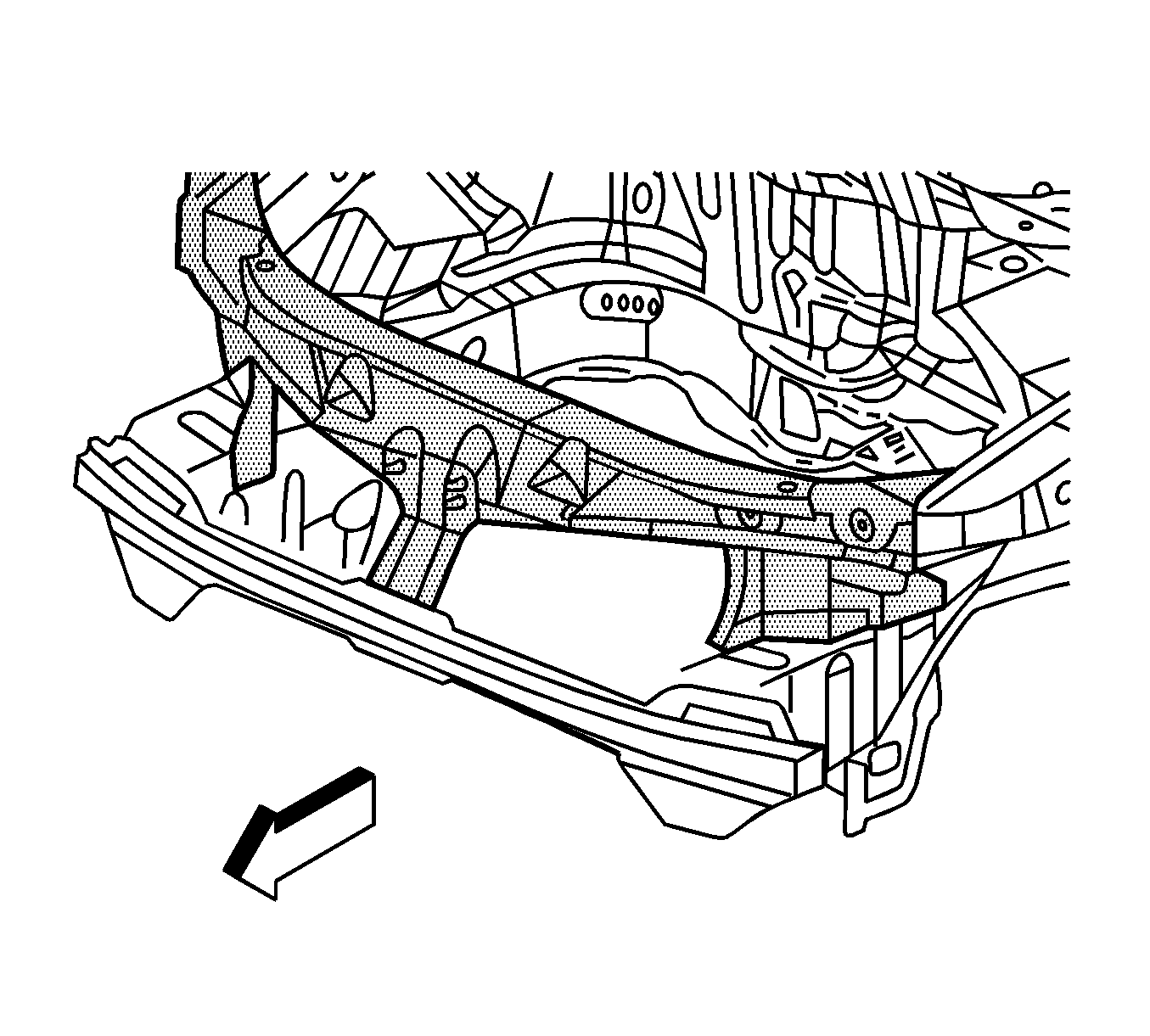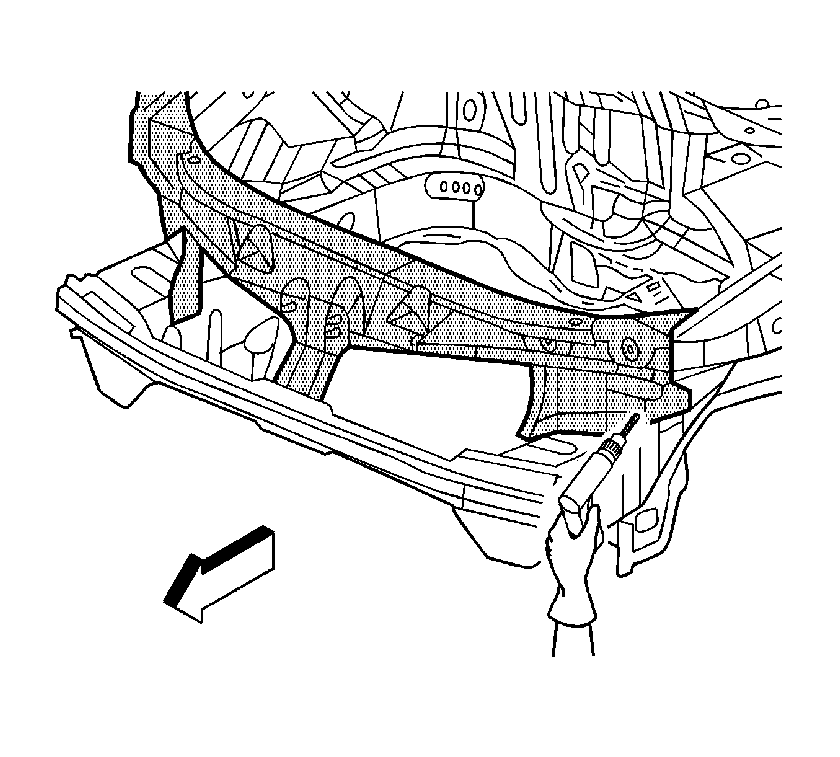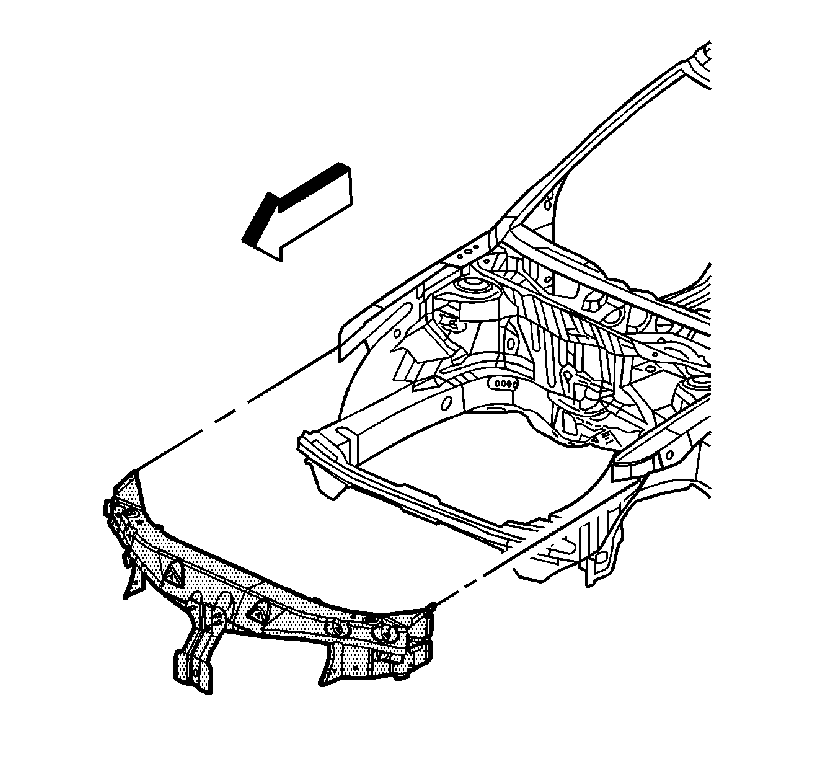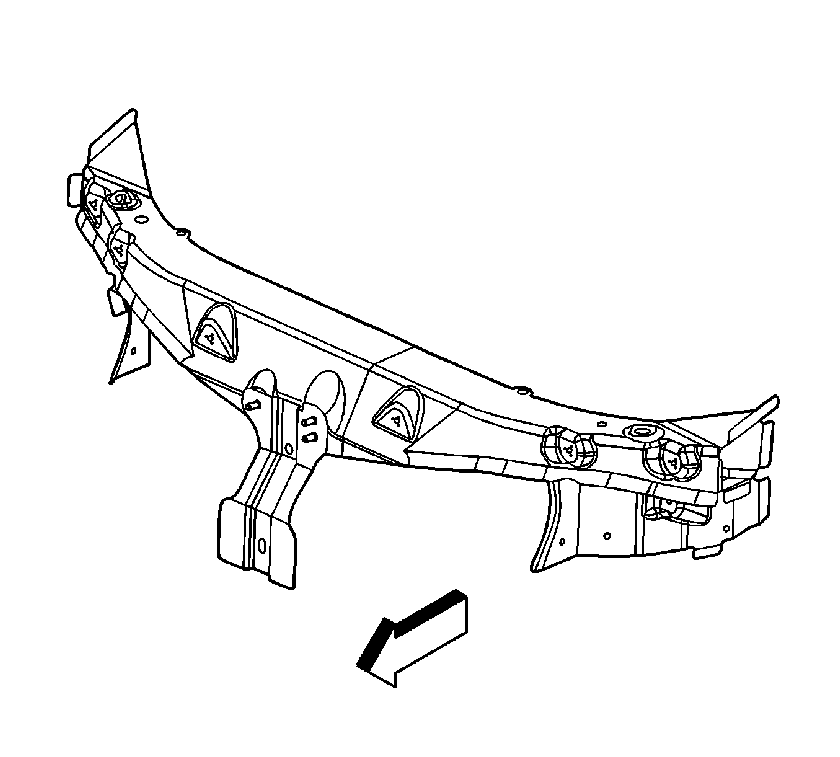For 1990-2009 cars only
Removal Procedure
Important: The front longitudinal is joined to the apron panel and front panel, it forms the base for the front suspension, engine, transaxle and others. Therefore, replacement of the component affects the front wheel alignment and maintains the rigidity of the front section. When assembling it, either use a jig or follow dimensions on the body repair chart for positioning. It must be welded carefully.
- Disable the SIR system. Refer to SIR Disabling and Enabling .
- Disconnect the negative battery cable.
- Remove all related panels and components.
- Repair as much of the damage as possible to factory specifications. Refer to Dimensions - Body .
- Note the location and remove the sealers and anti-corrosion materials from the repair area, as necessary. Refer to Anti-Corrosion Treatment and Repair .
- Locate and drill out all factory welds. Note the number and location of the welds for installation of the tie bar.
- Remove the damaged tie bar.
Caution: Refer to Approved Equipment for Collision Repair Caution in the Preface section.


Important: Do not damage any inner panels or reinforcements.

Installation Procedure
- Drill 8 mm (5/16 in) plug weld holes in the service part as necessary in the locations noted from the original panel.
- Prepare all mating surfaces as necessary.
- Apply 3M Weld-Thru Coating P/N 05916 or equivalent to all mating surfaces.
- Position the tie bar to the vehicle using 3-dimensional measuring equipment. Clamp the tie bar into place.
- Plug weld accordingly.
- Clean and prepare all welded surfaces.
- Apply the sealers and anti-corrosion materials to the repair area, as necessary. Refer to Anti-Corrosion Treatment and Repair .
- Paint the repair area. Refer to Basecoat/Clearcoat Paint Systems .
- Install all related panels and components.
- Connect the negative battery cable.
- Enable the SIR system. Refer to SIR Disabling and Enabling .

Important: If the location of the original plug weld holes can not be determined, space the plug weld holes every 40 mm (1 1/2 in) apart.

